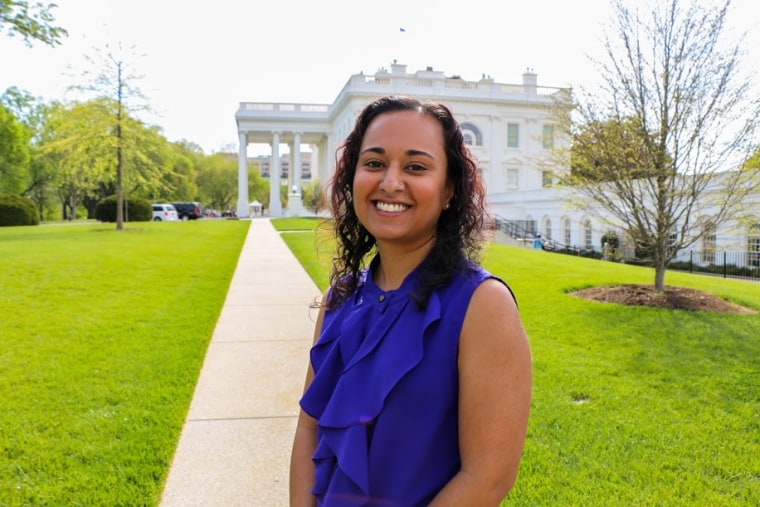
Manar Waheed, 38
Deputy Policy Director for Immigration, White House Domestic Policy Council
How did you get here?
I spent many years after law school working with survivors of domestic violence on a variety issues—orders of protection, custody and visitation, child support, and divorce as well as criminal matters and ancillary issues. I found that the longer I worked somewhere, the more people heard that I spoke Spanish and that I was Pakistani and Muslim. As a result, the overwhelming majority of my clients were Spanish speakers, South Asians, or Muslim. Many of them were also undocumented. As many direct service providers experience, there’s very little time in the day to work on policy changes when you have real people sitting across from you, particularly when they are in crisis situations. After several years, I decided to take my experience and move into the policy advocacy space. A couple of jobs later, I found myself working on immigration policy at the White House. I can’t explain what parts of that were good fortune, people vouching for my work, or the fact that my boss decided to take a chance on me. In the year and a half I’ve worked here, I’ve had the privilege of working on immigration policy as well as hate crimes, including those impacting Muslims or those perceived as Muslims. Whatever and whoever got me here, I’m infinitely grateful.
Who or what has been the greatest influence on your career?
The women who I represented will always be the greatest influence on my career and also on my life. I often see societal portrayals of survivors of abuse that indicate a level of weakness—that they “choose” to stay with abusers or that they “should have left.” With all the clients I represented, who were overwhelmingly women, I never found that to be the case; strength embodies itself in a variety of ways, not always the ways in which we are conditioned to see as strength. My clients were forces of resilience and strength like nothing I’ve ever seen. To live in a space of fear—often for their lives—and expose their issues to another person (an advocate, an attorney, an officer, a judge) takes a tremendous amount of courage. And then, on top of that, our systems are frequently not able to protect them from their abusers. But these women, they keep fighting for themselves and for their children, during the most dangerous and discouraging times. They survive and move forward with a level of compassion, grace, and resolve that I can only hope to achieve some day. My clients were the strongest people I’ve ever encountered and their strength is a part of my daily resolve.
What do you consider your greatest accomplishment during the Obama administration?
Truthfully, I can’t say that I have one accomplishment—I have so many! But in all seriousness, this question is challenging because I wouldn’t say that “I” have accomplished anything. More here than anywhere I have ever worked, I feel very much a part of a team. There are so many people involved in each and every accomplishment, in making sure every angle has been considered and evaluated. I’ve been so privileged to have been a part of the Immigration Executive Actions as well as the President’s mosque visit. The interesting thing is that those actions came out of challenging times, which says so much about President Obama and his staff to step up in these crucial moments and move forward. If I had to choose, those would probably be my proudest moments of the President and of our team.
Can you describe your time working for the Obama administration in 10 words?
Most empowering and collaborative experience of my life.
Complete the sentence: “When I’m not working, I…”
When I’m not working, I live for the disconnection, perspective, and exposure that only international travel can provide.
Follow NBC Asian America on Facebook, Twitter, Instagram, and Tumblr.